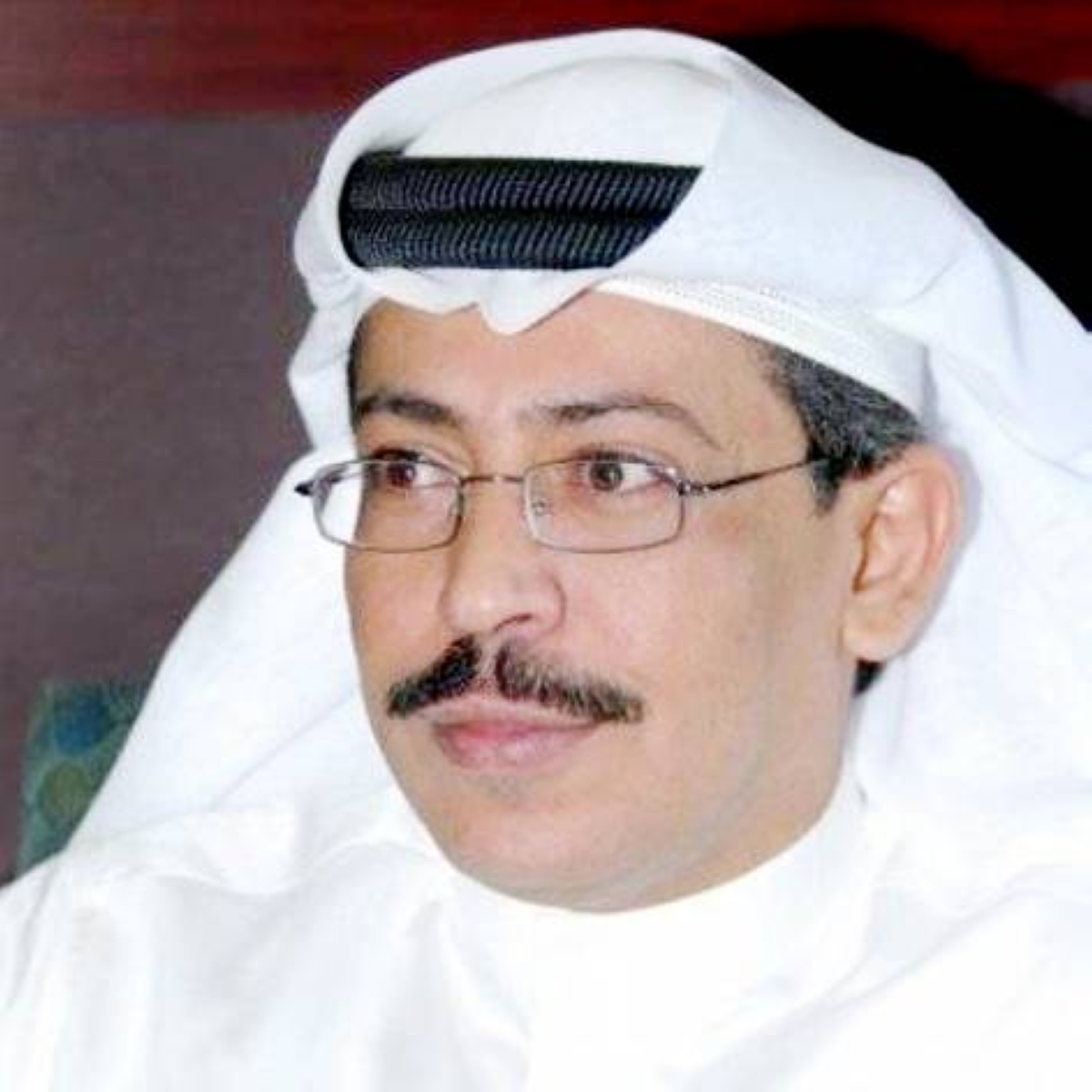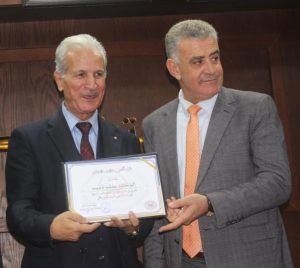It is striking in the Arab cultural scene that the spotlight rushes, the media competes, and institutions launch themselves after literary figures fortunate enough to win awards, even though some of them live in the shadows for years without any attention or care. In the joy of simultaneous attention with winning an award, readers may be confused; some are moved by writing that touches their emotions, while others lean toward work endorsed by honors and victories. Here is a survey of elite opinions on this ongoing issue, attempting to restore appreciation for quality writers whether they win an award or are deprived of it.
Writer Hashem Al-Jahdali believes that awards and their circumstances have become the topic of the hour in the Arab cultural scene; among the reasons is that originally, an Arab award was a tribute to unique brilliance by a qualified evaluator with the ability to grant it. He pointed out that over time, contexts changed and winning became a seizure from a competitive arena with judges, sponsors, and donors. Then matters evolved into an uncontrollable form, making the “award” an ambiguous act with dozens of meanings, cases, and interpretations.
Al-Jahdali explained that the Nobel Prize, despite some setbacks, poor judgment, and provocative direction, is still a respected award that grants the writer two values: moral and material. Often the moral value is greater by spotlighting the winner and their work beyond imagination and in all world languages, pushing media and institutions to crowd the winner’s door to the point of his complaint, with additional ceremonies building their glory on the glow of the win. He added that the great novelist Naguib Mahfouz, after winning the Nobel Prize and being bombarded by flashes and media interview requests, said: “It seems I have become an employee of the Nobel!”
He added that not all awards have such echoes; some have large material/financial value but in reality mean nothing and no one boasts about them, and writers participate just to gain their benefits. He confirmed that Arab honorary awards are more sincere as they are usually given to deserving recipients, albeit rarely. He pointed out that some awards are linked to entities or committees, and whenever the committees change, their identity changes and they turn into different awards, such as annual book fair awards or festivals.
Some awards are considered grants or donations disguised as competitions or nominations, and some are tailor-made for recipients without anyone knowing why. However, they cause a buzz for about two months, and the clever one dazzles the institutions under whose umbrella he works on their importance and his own. Al-Jahdali sees that awarding prizes in this manner becomes a form of absurdity and chaos, a golden opportunity not missed by opportunists.
Poet Jassim Al-Sahih said that awards are transient honorary stations on the endless and ongoing path of creativity, affirming that a writer who works hard to develop his experience deserves to win honorary awards. The question here: do cultural institutions treat a writer differently after winning an award?
Al-Sahih pointed out that some writers live in the shadows, grow, and shine there as well. When one of them wins a major award, attention is drawn to his achievement, cultural institutions celebrate him, and invitations to participate in various festivals flock to him, enabling him to quickly establish his presence in the scene. This is natural.
He added that competitions have increased now, some linked locally, some to the Arab world, and some internationally. He considered the chase by institutions after a writer to exploit his achievement inaccurate, as some institutions support the writer from the start and participate with his work in literary competitions. He believes they have the right, upon winning, to consider themselves moral partners in the victory, not material partners.
Lebanese poet Abeer Hassan Allam said that some cultural and media institution officials do not follow writers and their publications, do not keep up with them, nor pay attention to their talent and distinction. She confirmed that the interest is focused on material returns and riding the trend wave. She added that it is annoying that these same institutions suddenly, under the direction of their officials, pay full attention to a writer who was obscure before the award or who was previously ignored. This happens for the same commercial reasons and to ride the trend wave again.
Cultural expert Dr. Ahmed Samaha said he cannot confirm this; sometimes institutions notice after media coverage, and sometimes the media notices after institutions, through visions, dialogues, and coverage of events in which the writer participates. Often, it becomes just an event like other cultural events. For example, an Egyptian novelist recently won the Booker Prize, which attracted media attention that had not followed his creativity and cultural activities before. The spotlight was on him for a while, then it ended. The writer was held responsible for writing and publishing within a limited circle despite the spread of communication means such as Facebook, Twitter, and others, and the spread of private and public cultural entities including forums, cultural associations, and writers’ unions. He hopes that media and cultural departments follow the cultural movement in all its aspects.
He added that when each entity does its role, the matter becomes natural, and the importance of culture and creativity in the comprehensive renaissance of society is confirmed.
Osama Al-Muslim: External Recognition Helped Draw Attention to Us
Samaha added that regarding hospitality and honoring, there was great hospitality in all the Arab exhibitions, countries, and cities he visited by dear readers and organizers of these exhibitions. He was honored in some by special invitations to meet culture ministers and received invitations for honoring and appreciation from Saudi embassies in these countries. However, the 2024 Ministry of Culture Literature Award is the most important to him in terms of celebration and honoring, which he was very happy with, because it comes from the most important cultural authority in his country. The words of encouragement and praise during the receipt from Minister of Culture Prince Badr bin Farhan had a profound impact on him. He received kind invitations to participate in many events organized by the Ministry of Media, and personal attention from Minister Salman Al-Dosari and Undersecretary Dr.
Abdullah Al-Maghlouth, which deeply supported and encouraged him to continue producing in his literary path.
Regarding external attention attracting internal attention, as for readers and the reading community, he was well known to them in all signing events held inside Saudi cities, whether in book fairs or private libraries. The halls were crowded with visitors, and signing sessions extended for very long hours, sometimes until early morning, which he greatly appreciates and is grateful for. As for some cultural and media circles, it can be said that external recognition helped attract their attention, perhaps because these circles do not always keep up with the interests of the new generation and thus do not catch what stops the contemporary reader except after the writer establishes his presence in a wider space.














Recommended for you
Exhibition City Completes About 80% of Preparations for the Damascus International Fair Launch
Talib Al-Rifai Chronicles Kuwaiti Art Heritage in "Doukhi.. Tasaseem Al-Saba"
Unified Admission Applications Start Tuesday with 640 Students to be Accepted in Medicine
Egypt Post: We Have Over 10 Million Customers in Savings Accounts and Offer Daily, Monthly, and Annual Returns
His Highness Sheikh Isa bin Salman bin Hamad Al Khalifa Receives the United States Ambassador to the Kingdom of Bahrain
Al-Jaghbeer: The Industrial Sector Leads Economic Growth